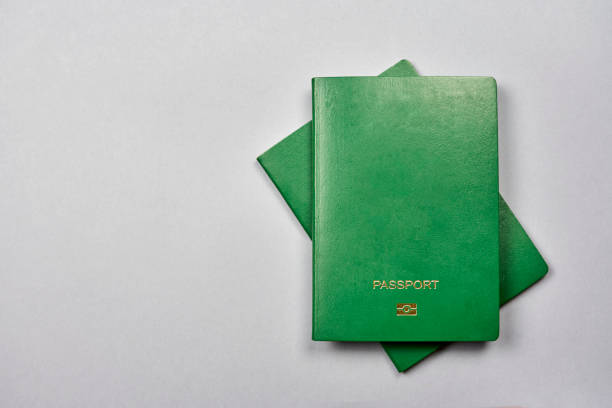Green Passports Amidst the ever-evolving regulatory landscape geared towards combating global warming, international trade stands at a pivotal juncture. The European Union formalized the Carbon Border Adjustment Mechanism (CBAM) on 17th August 2023, laying down directives for its transitional phase, effective until 31st December 2025. Major global exporters of crucial commodities to the EU, encompassing steel, iron ore, cement, electricity, hydrogen, and fertilizers, are confronted with a stark choice: either risk forfeiting access to the EU market or grapple with hefty tariffs, spanning between 20% to 35%, for goods deemed high in carbon intensity.
Such a scenario underscores the urgency for manufacturers to integrate robust authentication and traceability protocols, which are crucial for navigating the complexities of export certification.
Green Passports: Meeting compliance and avoiding penalties

The CBAM is a tool to help industries reach the goal of net-zero emission commodities. However, the current Enterprise Resource Planning (ERP) systems struggle to meet the CBAM’s reporting and certification demands.
Here are the challenges with existing systems:
1. The time consumption of understanding regulations and quantifying emissions
2. Implementing new systems for quantification and management
3. Current methods for formatting reports that meet ISO 14064 standards
4. Most ERPs work in isolation, preventing shared access to essential immutable ledger data provided by actors along the supply chain.
Enter blockchain traceability platforms. These offer a solution by helping validate products according to CBAM rules. The strength of blockchain is its ability to be shared, unchanged, and secure. Every product gets a digital ‘passport’ or a unique ID stored safely.
These digital passports help manufacturers align with CBAM by allowing them to balance out their carbon emissions when exporting goods to the EU. They can do this by buying Carbon Credits on trading platforms.
Track and Trace tools also help businesses gather data on:
A. Where recycled materials come from.
B. The energy used during production.
C. Transport-related emissions, which can be combined with ERP data.
Finally, these passports can be shown as QR codes on products, linking to the data. Companies using these solutions can gather and use data more easily, making it simpler and cost-effective to meet regulations.
Navigating the Blockchain Revolution: A Comprehensive Guide to Digital Passports


In the rapidly evolving world of CBAM compliance, digital product passports are more than just tools for adherence – they’re pivotal for strategic business growth. These passports empower exporters with a CBAM-validated status, attesting to the carbon accountability of their products.
For a holistic approach, enterprises are urged to employ the ARVIT methodology:
1. Assess: Scrutinize current recycled material sources, fabrication workflows, and IOT sensor accuracy. Also, consider the mix of renewable energy and transportation emission alternatives.
2. Report: Present both the current operations and the vision for a competitive edge in the EU market.
3. Validate: Incorporate lab certificates, supply chain verifications, and other pertinent documentation.
4. Improve: Make essential transitions, like augmenting the recycled material composition, pivoting to renewable energy, and integrating traceability solutions with ERP systems.
5. Trace: Implement exhaustive traceability spanning materials, energy, manufacturing, inventory, and transportation emissions.
The uses of blockchain traceability, once implemented, are:
– Consolidate diverse operational data, ranging from sourcing to transport emissions.
– Utilize computer vision to pinpoint recycled content and related processes.
– Sync with IoT sensors in manufacturing facilities, capturing real-time data on recycled material intake, energy consumption patterns, and production output.
– Embed a QR code-linked digital passport for each product, ensuring authenticity and preventing redundancy.
– Seamlessly connect with existing ERP systems, streamlining data collection and processing.
– Improve access to emissions trading options.
To encapsulate, digital product passports, with their extensive lifecycle overview, not only bolster CBAM regulatory adherence but also propel companies towards a net-zero carbon goal, ensuring their seamless entrance into regulated CBAM markets.
For a deeper dive into CBAM regulations or to explore the potential of voluntary carbon offsets, reach out to Nisreen Shadad, Head of Sustainability at Verofax, at ni*****@Ve*****.com.
About Verofax
Verofax stands at the forefront of blockchain-anchored Asset Digitization and Traceability solutions. With a global footprint spanning North America, Europe, Asia, and the MENA regions, Verofax offers robust solutions across various cloud platforms, paving the way for manufacturers to align with ESG norms, ensuring transparent and auditable transactions for all stakeholders.
For a technical overview, explore [Verofax](https://verofax.com) or connect at in**@ve*****.com.








